NATO summit: Australian eyes in the sky join fight for Ukraine
Australia will send one of its most sophisticated surveillance planes to Europe to help protect key logistics hubs, in a significant step up of assistance to Ukraine.
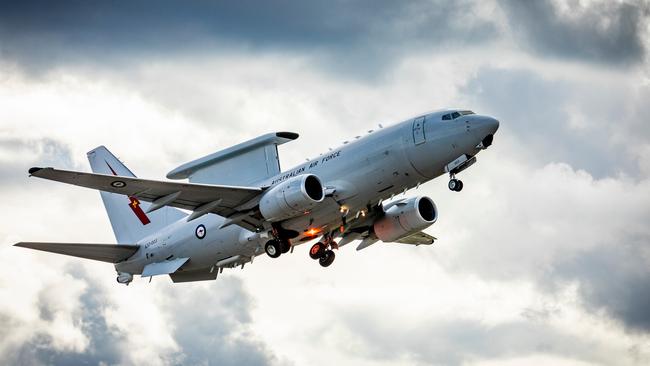
Australia will send one of its most sophisticated surveillance planes – the Royal Australian Air Force E-7A Wedgetail aircraft – to Europe for six months to help protect key wartime logistics hubs, in a significant step up of assistance to Ukraine.
The deployment of the Wedgetail will help protect the uninterrupted delivery of key military and humanitarian assets into Ukraine via Poland and other neighbouring countries.
As many as 100 Australian military personnel will be based in Germany, from where the plane will operate, for the six months to fly and service it.
The Australian government said in a statement: “Along with ongoing military and humanitarian assistance support, this deployment reinforces that Australia remains a key partner in international endeavours to assist Ukraine repel Russia’s illegal and immoral attack. This deployment will help to ensure the continued and uninterrupted flow of military and humanitarian assistance into Ukraine.”
The plane, which can be refuelled mid-air, has the capacity to conduct 13- to 17-hour missions. It will be used as part of the Western coalition’s Operation Kudu and will operate in European airspace. Officials confirmed it will not operate over Ukraine.
But the aircraft’s highly sophisticated radars and electronic warfare self-protection measures means Australia could be intimately involved in co-ordinating weaponry and other deliveries into Ukraine.
The RAAF says the E-7A Wedgetail is one of the most advanced airspace battle management capabilities in the world, with an “ability to co-ordinate a joint air, sea and land battle in real time”.
The deployment of the Wedgetail, one of six operated by the No.2 Squadron at Williamtown, NSW, ramps up Australia’s contribution to Ukraine, which has previously been limited to supplying various vehicles and ammunition.
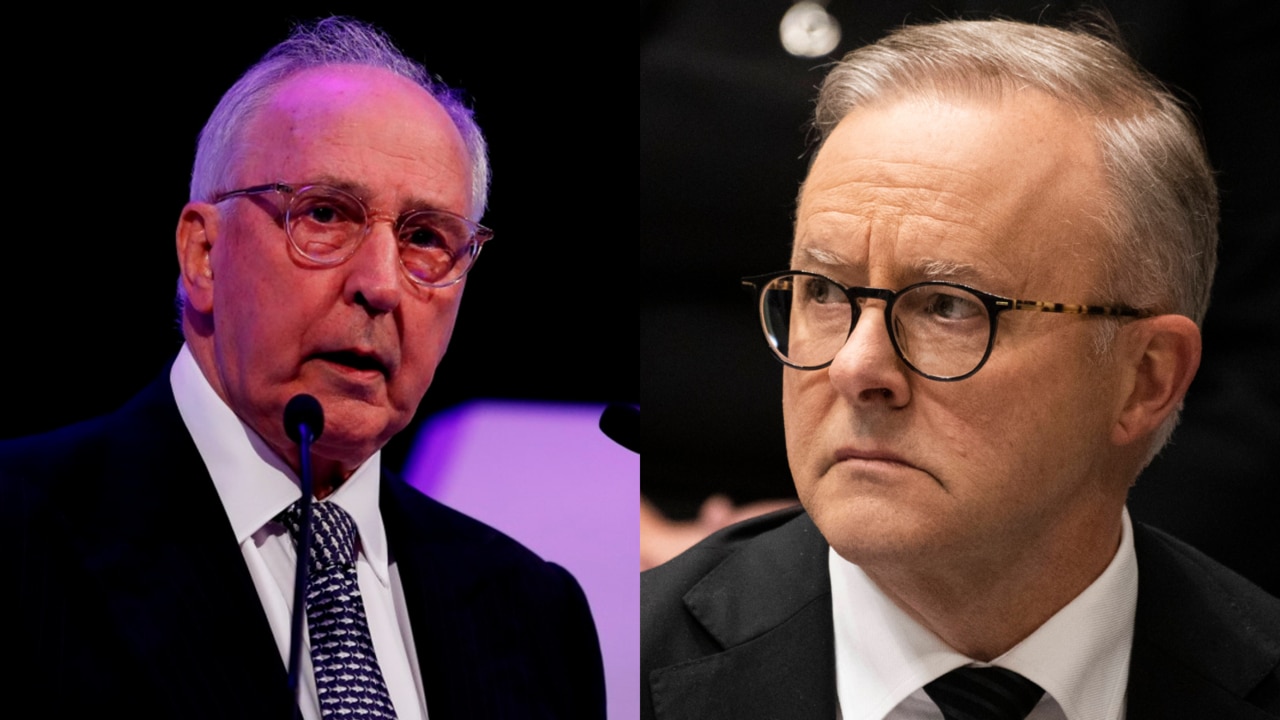
In a new move to put Australian personnel in Europe to help the Ukraine war effort, Anthony Albanese announced that up to 100 Australian personnel will be positioned at the Ramstein air base in Germany to crew and support the Wedgetail early warning plane.
“It’s important the democratic world can react to defend the rules-based order, it is significant for it will do but also for what it symbolises,” Mr Albanese said, adding that the message was that “Australia’s commitment to doing what we can, which will provide appropriate resources to maximise impact of Australia’s contribution to support the integrity and sovereignty of Ukraine”.
German Chancellor Olaf Scholz said he was “really moved” by Australia’s latest contribution.
“We are delighted about this massive support made by many countries who are not immediate neighbours or members of the European Union. We are partners in our different international forums and I am really moved and this is a very important step and a good one.”
Both leaders were asked about the appropriateness of the US suppling cluster bombs for use by Ukraine but they declined to comment on the controversial decision.
Mr Scholz said Germany was a signatory of the UN convention on cluster munitions and they would not be supplying any such weapons, and he stressed Germany wouldn’t comment on the US decision.
“For us we we will not make such deliveries because we have made this commitment (to the UN) and I won’t comment on this American decision,’’ he said.
Mr Albanese said he agreed with Mr Scholz’s comments about what other nations may do, saying “Australia is also a signatory (of the UN convention): we don’t have such weapons and we don’t intend to change that position.”
Mr Albanese will attend the two-day NATO summit in Vilnius, Lithuania, on Tuesday and Wednesday as part of the “Indo-Pacific Four” alongside Japan, New Zealand and South Korea to discuss security issues across both Europe and the Indo-Pacific. He hopes to meet Ukrainian President Volodymyr Zelensky on the sidelines of the summit.
Last month the Albanese government pledged a fresh round of $110m in support for Ukraine. It comprised 70 military vehicles, including 28 M113 armoured vehicles, 14 special operations vehicles, 28 MAN 40M medium trucks and 14 trailers; and a fresh supply of 105mm artillery ammunition.
However, the 31 member countries of NATO, and others, will be asked for further contributions as the Ukrainian offensive continues to progress more slowly than expected.
Mr Albanese on Monday rejected the claim by former Labor prime minister Paul Keating that NATO secretary-general Jens Stoltenberg was a “supreme fool” over his comments comparing China’s ambitions to Russia. Mr Albanese said “Jens Stoltenberg is a friend of Australia”.
“We need to remember the role that NATO is playing: there is a land war in Europe,” Mr Albanese said at a media conference in front of the Brandenburg Gate – the iconic symbol of Cold War divisions. “This is a war about the international rule of law, about whether a large nation can seek to impose its will on a smaller nation. This is about national sovereignty. This is about the people of Ukraine, struggling to defend their democracy and their sovereignty.
“And Australia stands with the people and government of Ukraine. But we also support the extraordinary effort that NATO is showing, because this is a struggle.
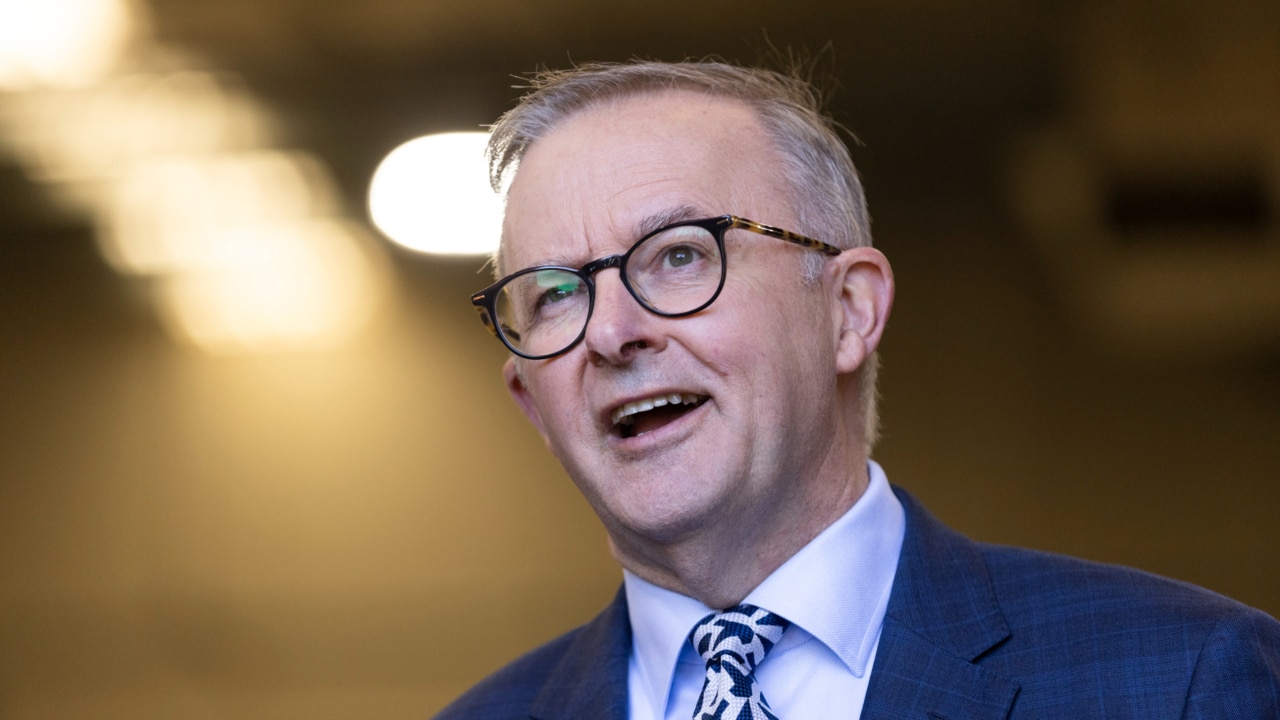
“That it has implications for the whole world. I’m looking forward to my constructive engagement with NATO.”
Mr Albanese met Mr Scholz in Berlin on Monday night at the German Chanchellery.
Their two-hour talks coincided with the announcement of the deployment of 240 German paratroopers and marines to Australia for Exercise Talisman Sabre, which involves Australia and the US alongside troops from Fiji, France, Indonesia, Japan, South Korea, New Zealand, Papua New Guinea, Tonga, Britain and Canada.
The involvement of 170 German paratroopers and 40 German marines is a big step up from previous engagements and signifies Germany’s interest and concern about China’s moves in the Indo-Pacific region.
German army chief Alfons Mais said the Indo-Pacific region was of extremely high importance in Germany and the European Union due to economic interdependencies.
Mr Scholz also formally invited Australia to join the Climate Club in recognition of Australia’s aggressive carbon emissions targets. The Climate Club was formed by G7 countries late last year and is led by Germany, which is trying to decarbonise and find other sources of energy away from Russian oil and gas. The club is working to ensure an international standard of conditions for the decarbonisation of industry, investment in sustainable industrial technologies and expand “green” energy, including green hydrogen.
“I see enormous opportunity for Australia to benefit from the shift to clean energy that’s occurring, including in countries like Germany,” Mr Albanese said.
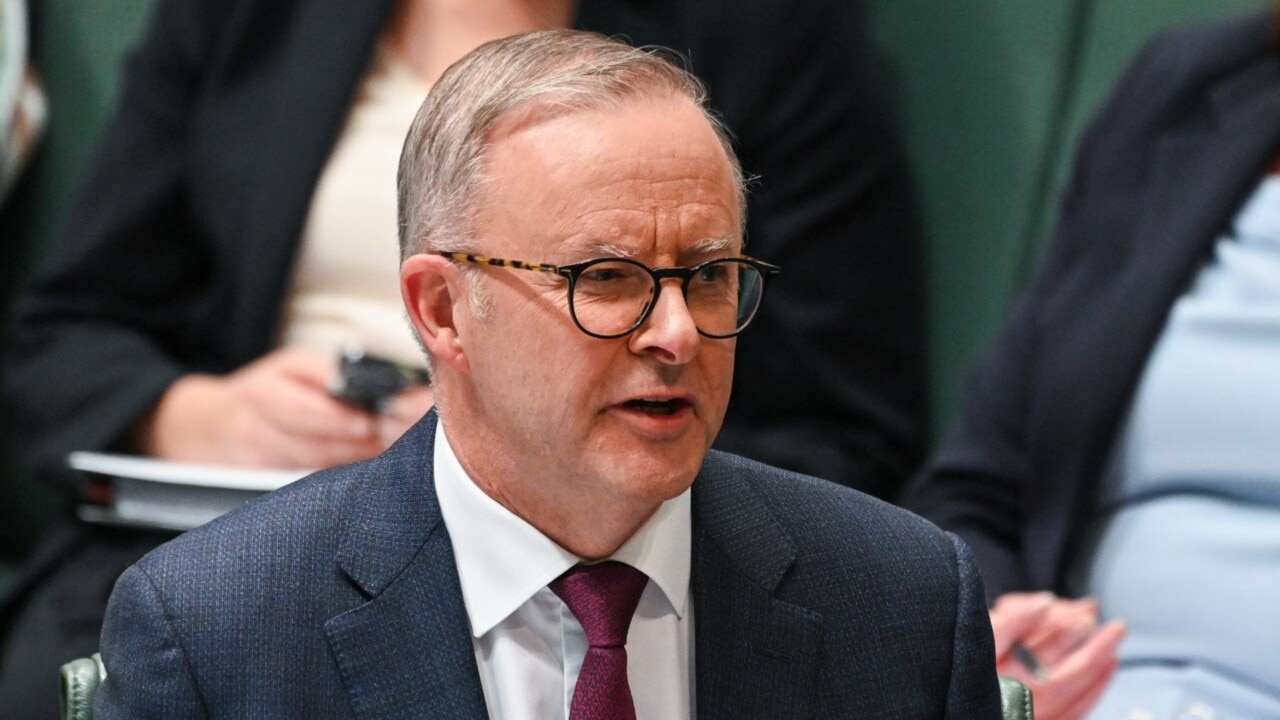
“We know that there has already been substantial discussions between the private sector in Australia with their counterparts here in Germany, looking at the transition and the opportunity that it creates in green hydrogen and in other new industries.”
Australia’s admission to the club is a recognition by others that Australia is aggressively seeking to reduce emissions and can help with the EU climate standards when it comes to trade.
That comes as the ailing Australian-EU free trade deal talks – bogged down in France and Ireland agribusiness protections – will be ramped up in Brussels later this week.
Mr Albanese said Mr Scholz had been a “huge supporter” of the yet-to-be signed free-trade agreement between Australia and the EU after signing a $1bn deal for more than 100 Boxer heavy weapon carriers that will be built in Queensland by German company Rheinmetall, which employs 1000 people locally. Mr Albanese also invited Mr Scholz to visit Australia next year.


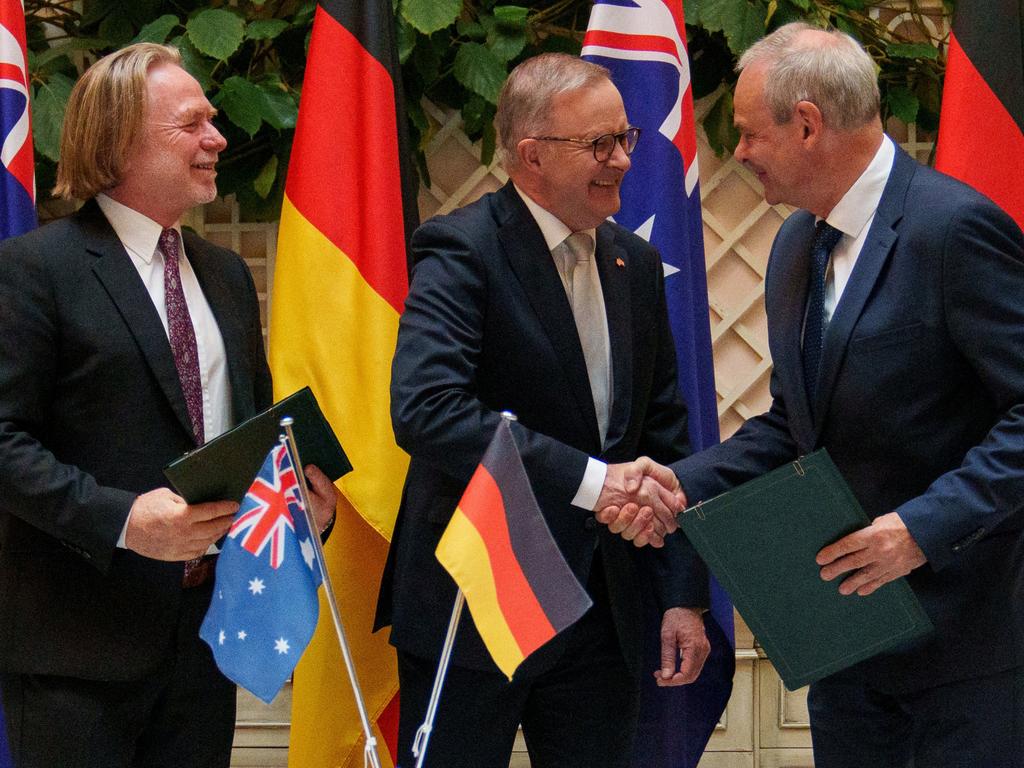
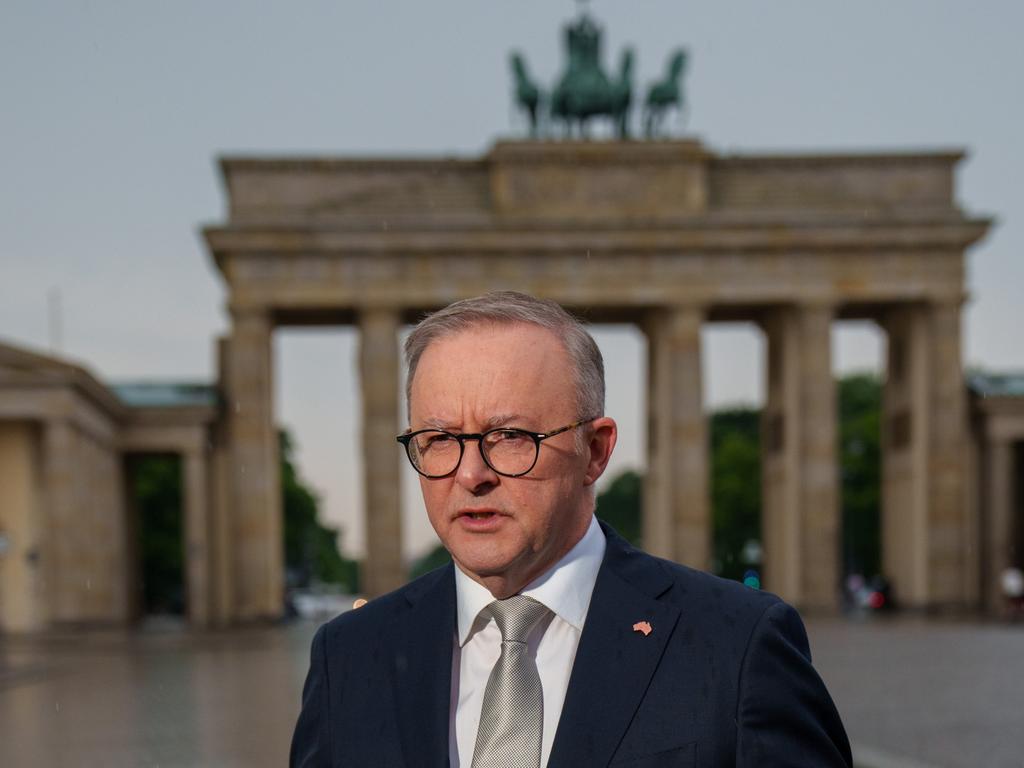
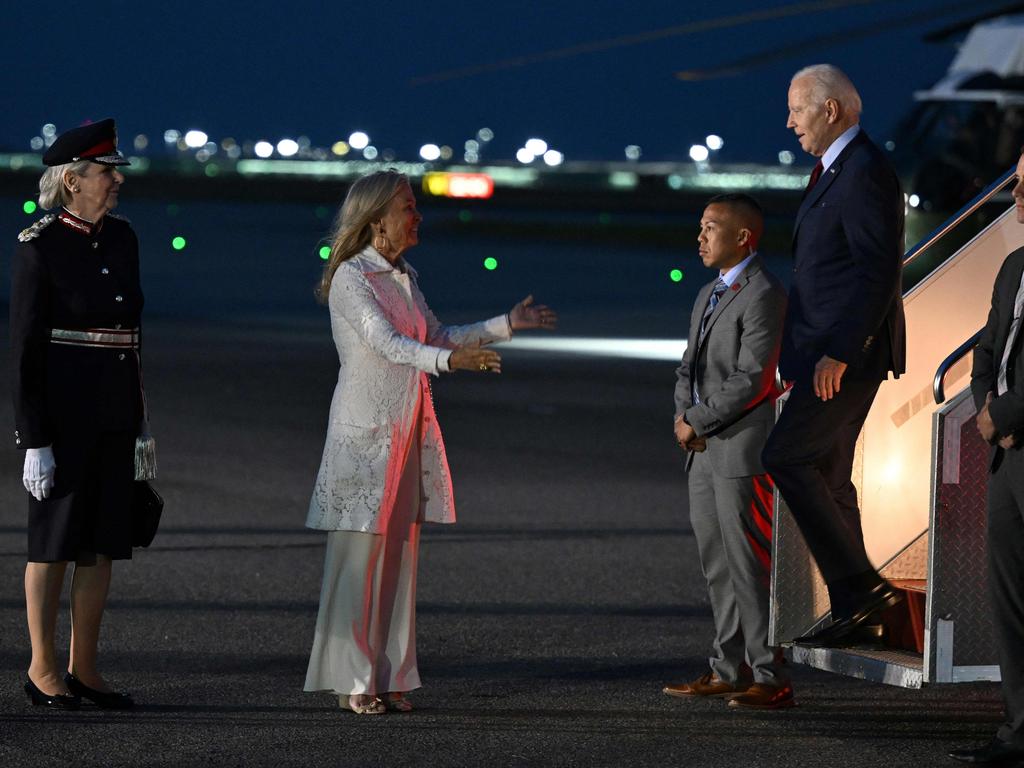



To join the conversation, please log in. Don't have an account? Register
Join the conversation, you are commenting as Logout